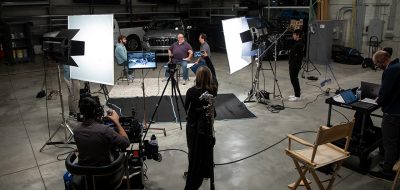In 2016, the BBC documentary blockbuster Planet Earth II became one of the most talked-about TV programs. In the UK alone, 9.2 million viewers tuned in to the first episode, making it the most-watched natural history program in 15 years and one of the most successful TV shows of the year.
Building on this enormous success, BBC Worldwide has announced a mini-series based on the documentary for 2017.
However, this new series comes with a twist: It will not be available on television or on-demand platforms. Instead, BBC Worldwide is producing the series in virtual reality (VR) format. Across three episodes, viewers will embark on adventures with wild animals from a fully immersive 360-degree perspective. Using Oculus Rift VR glasses or Samsung Gear VR headsets, audiences can experience the natural world as though they are right in the midst of it, rather than passively watching from their living rooms.
The BBC’s shift to VR is significant for every industry, but it is especially noteworthy as the UK’s largest broadcaster leads the charge. This move sets a milestone and establishes VR as the next big trend for broadcasters.
WILL 2017 BE THE YEAR OF VR TV?
Other broadcasters are likely to follow with similar formats, as growing user demand for immersive experiences cannot be ignored. However, VR is still in its developmental phase, and several hurdles need to be addressed before it can become a mass-market format for broadcasters.
- Monetization: To make VR financially sustainable, broadcasters must first navigate the question of funding. While ad-supported videos pose issues such as intrusive overlays, alternative approaches like sponsorships, product placements, or subscription video-on-demand (SVOD) models offer viable solutions.
- Quality: The VR experience differs significantly from the linear OTT or VOD formats we are accustomed to. For viewers to embrace VR, the experience must be seamless, with high-resolution visuals and smooth workflows. At this stage, broadcasters will need the expertise of video specialists like Brightcove to deliver premium VR content.
A BRIGHT FUTURE FOR VR
VR will likely grow far faster than the industry currently anticipates, especially as hardware becomes more affordable and accessible to the general public. Broadcasters will need to address these challenges head-on and embrace VR as the future of OTT TV.
The BBC’s VR mini-series will showcase the potential of advanced virtual reality formats, setting a high standard for others to follow. Regardless of how successful the BBC’s VR pilot proves to be, one thing is clear: Virtual reality is more than a fleeting trend. It is a groundbreaking format poised to establish itself as a long-term staple in the entertainment industry.




